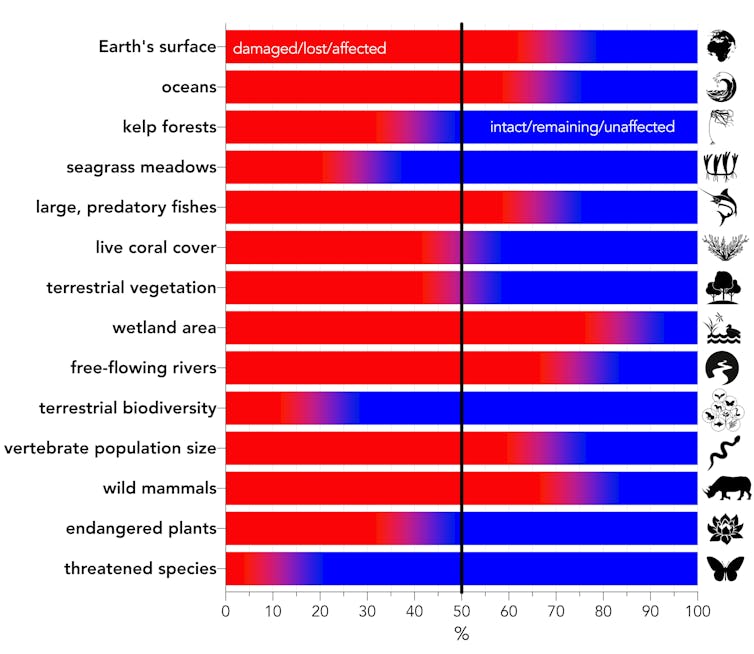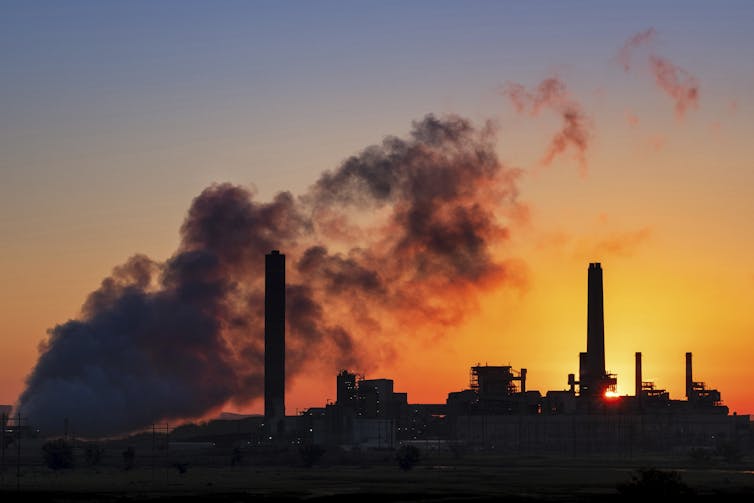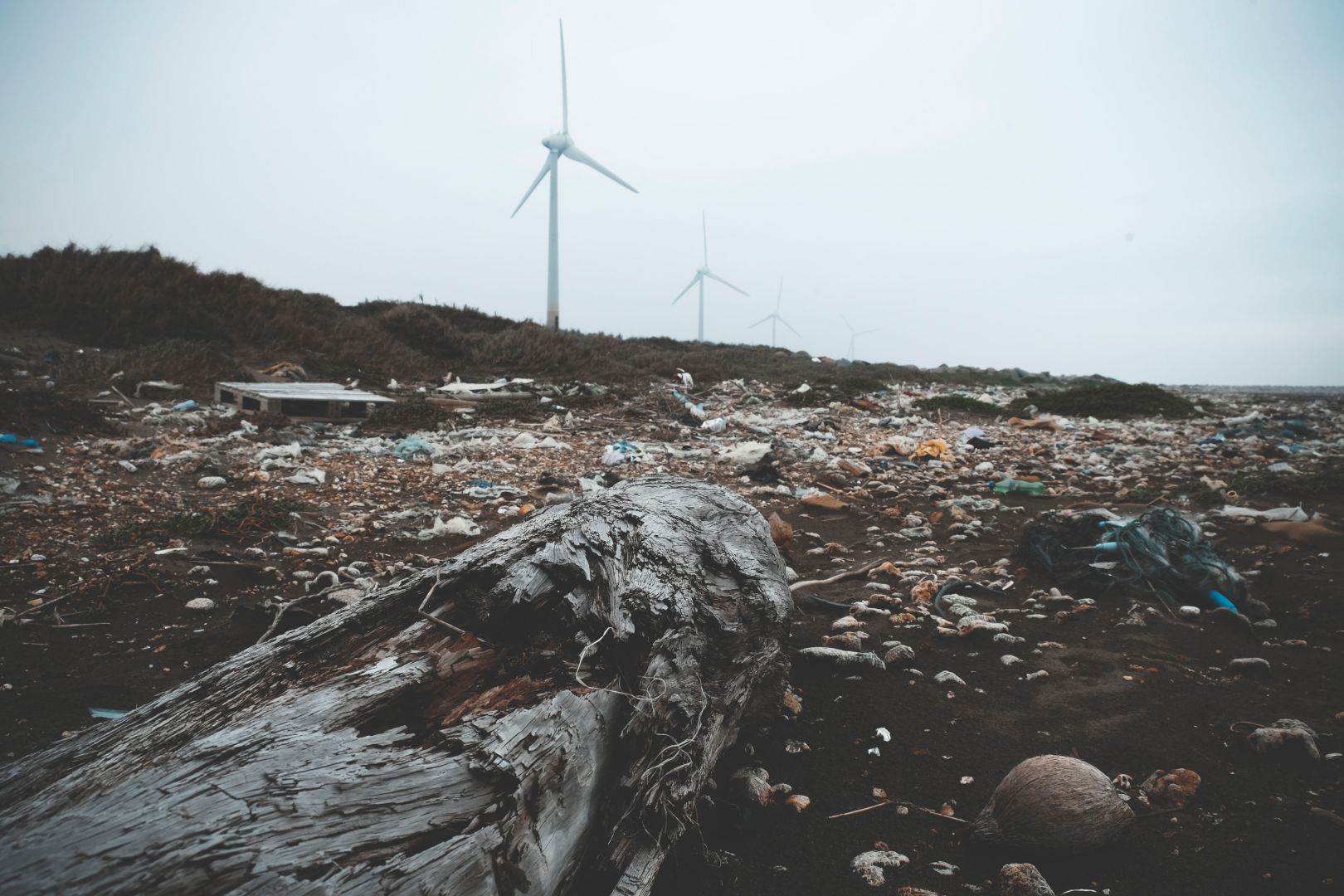This article was originally published on January 13, 2021 in The Conversation, known for academic rigour. The authors fight disinformation with facts and expertise.
By Corey J. A. Bradshaw, Daniel T. Blumstein and Paul Ehrlich/The Conversation
Anyone with even a passing interest in the global environment knows all is not well. But just how bad is the situation? Our new paper shows the outlook for life on Earth is more dire than is generally understood.
The research published today reviews more than 150 studies to produce a stark summary of the state of the natural world. We outline the likely future trends in biodiversity decline, mass extinction, climate disruption and planetary toxification. We clarify the gravity of the human predicament and provide a timely snapshot of the crises that must be addressed now.
The problems, all tied to human consumption and population growth, will almost certainly worsen over coming decades.
The damage will be felt for centuries and threatens the survival of all species, including our own. Our paper was authored by 17 leading scientists, including those from Flinders University, Stanford University and the University of California, Los Angeles. Our message might not be popular, and indeed is frightening. But scientists must be candid and accurate if humanity is to understand the enormity of the challenges we face.
Getting to grips with the problem
First, we reviewed the extent to which experts grasp the scale of the threats to the biosphere and its lifeforms, including humanity. Alarmingly, the research shows future environmental conditions will be far more dangerous than experts currently believe.
This is largely because academics tend to specialise in one discipline, which means they’re in many cases unfamiliar with the complex system in which planetary-scale problems — and their potential solutions — exist.
What’s more, positive change can be impeded by governments rejecting or ignoring scientific advice, and ignorance of human behaviour by both technical experts and policymakers.
More broadly, the human optimism bias – thinking bad things are more likely to befall others than yourself – means many people underestimate the environmental crisis.
Numbers don’t lie
Our research also reviewed the current state of the global environment. While the problems are too numerous to cover in full here, they include:
- a halving of vegetation biomass since the agricultural revolution around 11,000 years ago. Overall, humans have altered almost two-thirds of Earth’s land surface
- about 1,300 documented species extinctions over the past 500 years, with many more unrecorded. More broadly, population sizes of animal species have declined by more than two-thirds over the last 50 years, suggesting more extinctions are imminent
- about one million plant and animal species globally threatened with extinction. The combined mass of wild mammals today is less than one-quarter the mass before humans started colonising the planet. Insects are also disappearing rapidly in many regions
- 85% of the global wetland area lost in 300 years, and more than 65% of the oceans compromised to some extent by humans
- a halving of live coral cover on reefs in less than 200 years and a decrease in seagrass extent by 10% per decade over the last century. About 40% of kelp forests have declined in abundance, and the number of large predatory fishes is fewer than 30% of that a century ago.

A bad situation only getting worse
The human population has reached 7.8 billion – double what it was in 1970 – and is set to reach about 10 billion by 2050. More people equals more food insecurity, soil degradation, plastic pollution and biodiversity loss.
High population densities make pandemics more likely. They also drive overcrowding, unemployment, housing shortages and deteriorating infrastructure, and can spark conflicts leading to insurrections, terrorism, and war. Essentially, humans have created an ecological Ponzi scheme. Consumption, as a percentage of Earth’s capacity to regenerate itself, has grown from 73% in 1960 to more than 170% today.
High-consuming countries like Australia, Canada and the US use multiple units of fossil-fuel energy to produce one energy unit of food. Energy consumption will therefore increase in the near future, especially as the global middle class grows.
Then there’s climate change.
Humanity has already exceeded global warming of 1°C this century, and will almost assuredly exceed 1.5 °C between 2030 and 2052. Even if all nations party to the Paris Agreement ratify their commitments, warming would still reach between 2.6°C and 3.1°C by 2100.
The danger of political impotence
Our paper found global policymaking falls far short of addressing these existential threats. Securing Earth’s future requires prudent, long-term decisions. However this is impeded by short-term interests, and an economic system that concentrates wealth among a few individuals.
Right-wing populist leaders with anti-environment agendas are on the rise, and in many countries, environmental protest groups have been labelled “terrorists”. Environmentalism has become weaponised as a political ideology, rather than properly viewed as a universal mode of self-preservation.
Financed disinformation campaigns, such as those against climate action and forest protection, protect short-term profits and claim meaningful environmental action is too costly – while ignoring the broader cost of not acting. By and large, it appears unlikely business investments will shift at sufficient scale to avoid environmental catastrophe.
Changing course
Fundamental change is required to avoid this ghastly future. Specifically, we and many others suggest:
- abolishing the goal of perpetual economic growth
- revealing the true cost of products and activities by forcing those who damage the environment to pay for its restoration, such as through carbon pricing
- rapidly eliminating fossil fuels
- regulating markets by curtailing monopolisation and limiting undue corporate influence on policy
- reigning in corporate lobbying of political representatives
- educating and empowering women across the globe, including giving them control over family planning.

Don’t look away
Many organisations and individuals are devoted to achieving these aims. However their messages have not sufficiently penetrated the policy, economic, political and academic realms to make much difference.
Failing to acknowledge the magnitude of problems facing humanity is not just naïve, it’s dangerous. And science has a big role to play here.
Scientists must not sugarcoat the overwhelming challenges ahead. Instead, they should tell it like it is. Anything else is at best misleading, and at worst potentially lethal for the human enterprise.
Authors
Corey J. A. Bradshaw Matthew Flinders Professor of Global Ecology and Models Theme Leader for the ARC Centre of Excellence for Australian Biodiversity and Heritage, Flinders University
Daniel T. Blumstein Professor in the Department of Ecology and Evolutionary Biology and the Institute of the Environment and Sustainability, University of California, Los Angeles
Paul Ehrlich President, Center for Conservation Biology, Bing Professor of Population Studies, Stanford University


The Sixth Mass Extinction is an ongoing extinction event perpetrated by human beings. Civilized man does not understand that they are part of the biodiversity and will also go extinct. And to use this as a form of political correctness is lunacy.
This largely echoes last year’s report by the UN and IPBES (International Panel on Biodiversity and Ecosystem Services), which cited (among other things) a 20% decline of land-based species since 1900, extinction of more than 680 vertebrate species since 1700, and a 20% rise in CO2 emissions since 1980.
Global resource exploitation doubled between 1980 and 2018, while plastic pollution rose 1000%. We dump 300-400 million tons of industrial waste into the world’s waterways each year. Chemical fertilizer runoff has created marine dead zones 2/3 the size of California. Agricultural land has lost 23% of its productivity, and 73% of commercial fish species are being exploited at or above sustainability.
The report listed the 5 worst factors (in descending order) as (1) land and sea “development,” (2) direct exploitation of organisms, (3) climate change, (4) pollution, and (5) invasive species.
In other words, if we count ourselves as the most invasive species of all, we’re the whole list. And our basic problem is the “exploitation of organisms” noted above. The whole point of capitalism and industrialism is to turn as many natural things as possible into unnatural things, and sell them for profit. That’s more or less the same thing that pimps do, minus the pretty girls. And just like pimps, by any natural measure we have voided any right we ever had to be here.
The UN/IPBES chairman, Sir Robert Watson, nonetheless tried to put a positive spin on the disaster we have created, and on the noble profession of compensated rape.
“Through transformative change,” he said, “nature can still be conserved, restored, and used sustainably. By transformative change, we mean a fundamental, system-wide reorganization across technological, economic, and social factors, including paradigms, goals, and values.”
Spoken like a newly elected corporate CEO: We can still rape the planet, but only if we pay lip service to her heritage, and give her a half day off on Sundays.
With all due respect, Sir Robert, “No.” For the planet to survive as something more than a traumatized monkey in a zoo, we must completely renounce the false god of “development,” “growth,” “profit,” and “progress,” and begin to live AS nature, instead of subjugating it like a concubine.
True sustainability means renouncing cities, motor vehicles of any color, aircraft, container ships, electricity, the beef industry, and any imports and exports that can’t be transported by horse-drawn wagon or sailboat.
As another of the IPBES leaders noted, those with vested interests in destructive industries will oppose the necessary changes, but must be convinced, for the sake of the greater good. And he was just talking about greenwashing capitalism.
What is required, however, is the abolition of capitalism, and ending the metastatic cancer of perpetual growth on a planet that was grown long before we devolved from smarter apes.
Realistically, businessmen won’t defer to the greater good, because profiteers are convinced that they ARE the greater good. They will only fall when the system they have built falls. And that fall is coming soon. It might be in 10 years. More likely, in 20, 30, or 40. But certainly within 50.
Like the old Rod Stewart song says, “People get ready.”